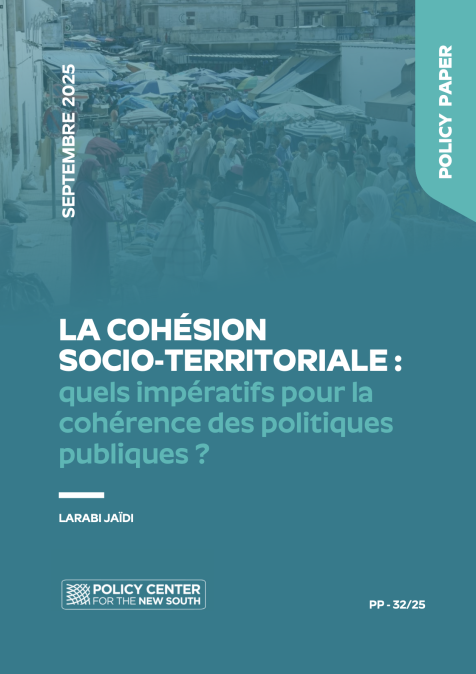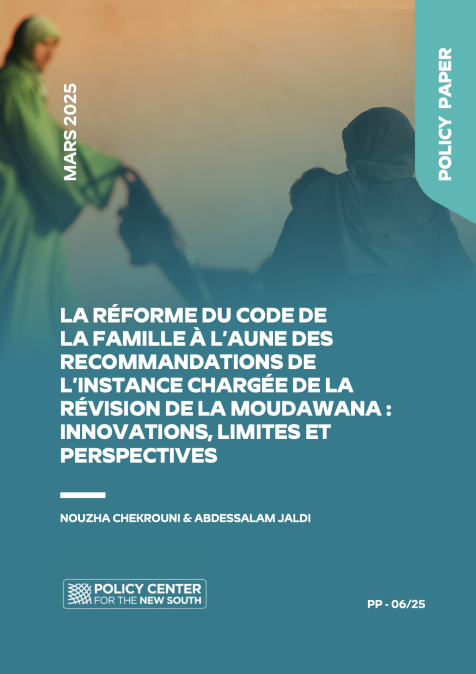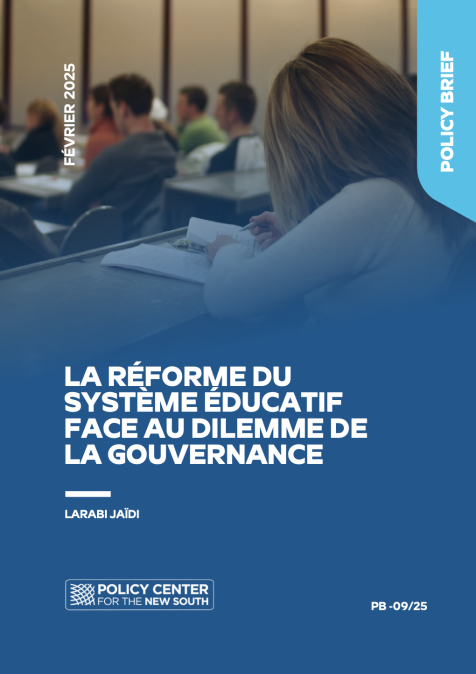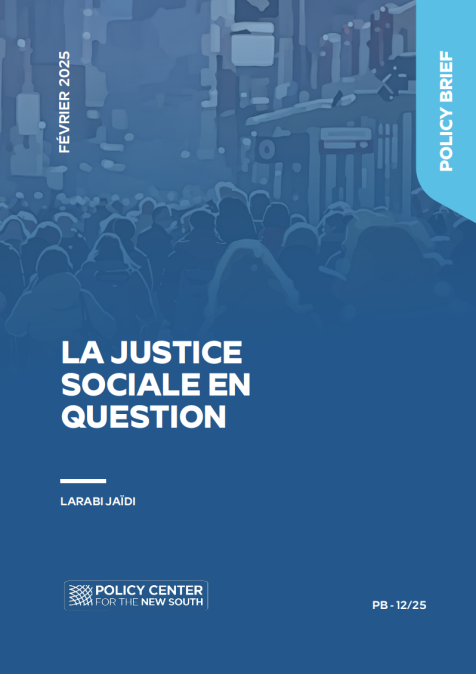This special issue on Gender and Society provides a comprehensive exploration of evolving gender dynamics, offering a variety of resources, including podcasts, policy papers, and key books, that collectively shed light on the contemporary challenges and implications of gender in society. Focusing on Morocco's ongoing commitment to gender equality, the issue examines the significant strides made through reforms such as the Family Code (Moudawana), which notably enhanced women's rights. Nearly two decades after this pivotal reform, a forthcoming legislative change aims to further strengthen these gains. However, despite such progress, persistent challenges highlight the necessity for continued critical engagement with gender dynamics, fostering a deeper understanding of the ways in which gendered structures and policies can be reformed to build a more inclusive and equitable society. The issue offers divers insights and analyses that contribute to this broader conversation on gender transformation.
RELATED CONTENT : Gender & Society
-
September 16, 2025مع انطلاق الموسم الدراسي 2025، تواجه المدرسة المغربية تحديات جديدة تتعلق بتحسين جودة التعليم وتوسيع فرص التلاميذ في مختلف المناطق، وسط جهود مستمرة لتنفيذ الإصلاحات التربوية. في حلقة اليوم، نستضيف الأستاذ عبد اللطيف اليوسفي، خبير التعليم والمدير السابق للأكاديمية الجهوية لجهة الغرب الشرا...
-
AuthorsSeptember 16, 2025Les questions des inégalités sociales et des inégalités territoriales sont profondément liées. Les politiques publiques ne peuvent réduire l’une sans s’attaquer à l’autre. Le phénomène des inégalités peut s’accentuer avec la fragilité de la situation socio-économique de certains territoires d’autant que le développement territorial n’est pas spontanément équitable. La réduction de ces inégalités, un des enjeux majeurs des politiques publiques, oblige à con ...
-
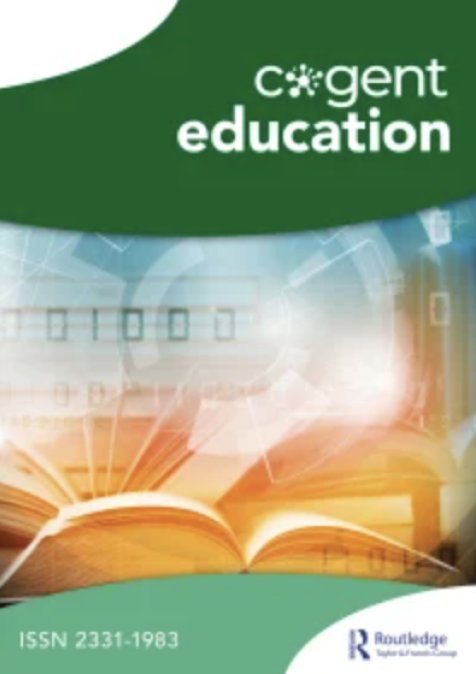 AuthorsAugust 28, 2025This Paper was originally published on tandfonline.com The gender gap in education remains a concern for Moroccan policymakers and researchers, yet it is rarely measured quantitatively. This study examines differences in reading and mathematics performance between girls and boys, both at the national level and by place of residence, using PIRLS (2016, 2021) and TIMSS (2015, 2019) data covering 21,129 students. The Blinder-Oaxaca decomposition method is applied to distingui ...
AuthorsAugust 28, 2025This Paper was originally published on tandfonline.com The gender gap in education remains a concern for Moroccan policymakers and researchers, yet it is rarely measured quantitatively. This study examines differences in reading and mathematics performance between girls and boys, both at the national level and by place of residence, using PIRLS (2016, 2021) and TIMSS (2015, 2019) data covering 21,129 students. The Blinder-Oaxaca decomposition method is applied to distingui ... -
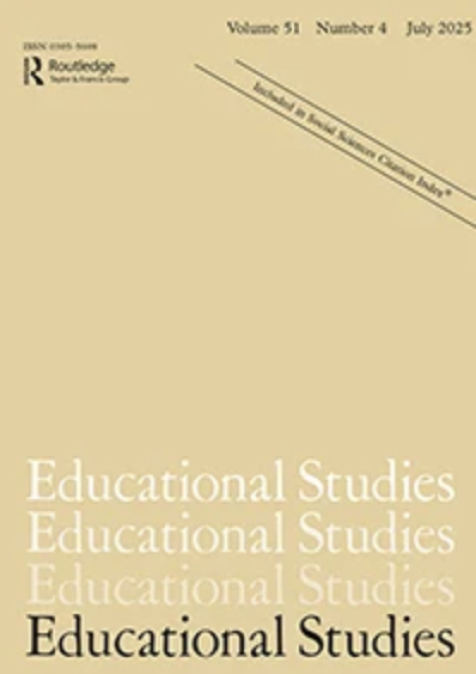 AuthorsJune 16, 2025This Paper was originally published on tandfonline.com This paper analyzes gender disparities in reading and mathematics among Moroccan 4th-grade students using data from PIRLS 2021 (7,017 students) and TIMSS 2019 (13,536 students). Using the Blinder-Oaxaca decomposition method, it separates performance gaps into explained (observable characteristics such as age, family background, teacher, and school factors) and unexplained (structural) components. In reading, the unexpl ...
AuthorsJune 16, 2025This Paper was originally published on tandfonline.com This paper analyzes gender disparities in reading and mathematics among Moroccan 4th-grade students using data from PIRLS 2021 (7,017 students) and TIMSS 2019 (13,536 students). Using the Blinder-Oaxaca decomposition method, it separates performance gaps into explained (observable characteristics such as age, family background, teacher, and school factors) and unexplained (structural) components. In reading, the unexpl ... -
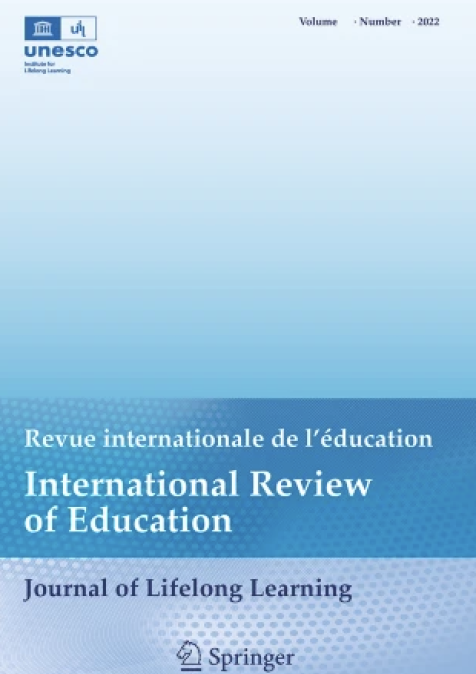 AuthorsKabir ElmakhloufiJune 11, 2025This Paper was originally published on springer.com Au Maroc, en plus de leurs missions religieuses, les mosquées jouent un rôle dans l’apprentissage qualifiant des adultes, favorisant ainsi leur intégration. L’article développe un indice à caractère économique pour évaluer cette intégration. Il mobilise des données ad hoc constituées par le suivi d’une cohorte de l’ensemble des 351 apprenantes pendant cinq ans et demi. Des résultats prometteurs témoignent d’un p ...
AuthorsKabir ElmakhloufiJune 11, 2025This Paper was originally published on springer.com Au Maroc, en plus de leurs missions religieuses, les mosquées jouent un rôle dans l’apprentissage qualifiant des adultes, favorisant ainsi leur intégration. L’article développe un indice à caractère économique pour évaluer cette intégration. Il mobilise des données ad hoc constituées par le suivi d’une cohorte de l’ensemble des 351 apprenantes pendant cinq ans et demi. Des résultats prometteurs témoignent d’un p ... -
AuthorsMarch 7, 2025Chaque jour, en moyenne, les femmes marocaines consacrent près de cinq heures à des tâches domestiques (cuisine, ménage, courses, soins aux enfants, etc.). Elles assurent plus de 90 % du temps total consacré aux tâches domestiques par l’ensemble des hommes et des femmes. Ce travail non rémunéré représente des services indispensables qui participent au bien-être matériel des personnes et des foyers sans pour autant apparaître dans la production nationale, telle que mesur ...
-
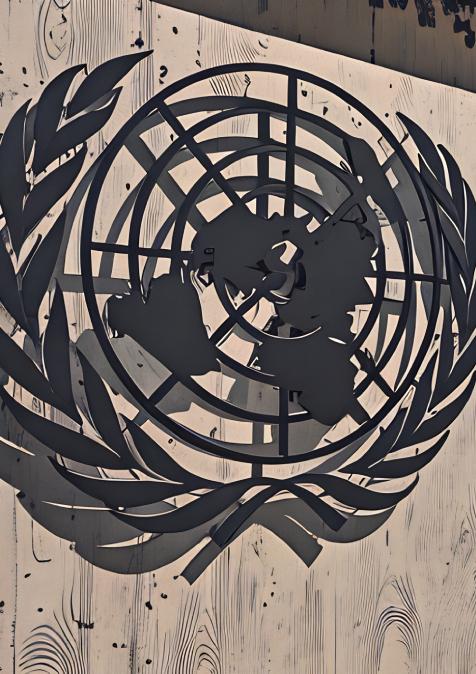 AuthorsGabriela Keseberg DávalosMarch 7, 2025L'article original en anglais a été initialement publié par Devex La course pour le poste du prochain Secrétaire général de l’Organisation des Nations Unies (ONU), dont la désignation aura lieu en 2026, a commencé, discrètement. À l’occasion de la célébration de la Journée internationale des droits des femmes, il est opportun de réfléchir au fait qu’aucune femme n’a jamais dirigé l’Organisation en 80 ans de son ’existence. Même si le prochain Secrétaire général de l’ON ...
AuthorsGabriela Keseberg DávalosMarch 7, 2025L'article original en anglais a été initialement publié par Devex La course pour le poste du prochain Secrétaire général de l’Organisation des Nations Unies (ONU), dont la désignation aura lieu en 2026, a commencé, discrètement. À l’occasion de la célébration de la Journée internationale des droits des femmes, il est opportun de réfléchir au fait qu’aucune femme n’a jamais dirigé l’Organisation en 80 ans de son ’existence. Même si le prochain Secrétaire général de l’ON ... -
March 6, 2025La révision en cours du Code de la famille (Moudawana), à travers ses dimensions à la fois référentielle et symbolique, a pour objectif de répondre aux attentes de la société marocaine, en pleine mutation, dans l’optique d’assurer une égalité substantielle entre les sexes, tout en protégeant les parties juridiquement vulnérables contre toute dérive juridique. En effet, les lois internes ne sont plus les seules à régir le droit de la famille. Alors que certaines recomm ...
-
March 6, 2025In this episode, Fay Cowper explores the importance of gender-inclusive program design in digital development and social innovation. She discusses how digital solutions can drive social change and advance innovation, while highlighting the need to create gender-equal opportunities in te...
-
AuthorsFebruary 24, 2025Le système éducatif est au cœur de tous les débats. Normal, l’École pose les fondations des sociétés futures car elle est déterminante pour notre prospérité future qui dépend largement des compétences et des connaissances que le système scolaire inculque aujourd’hui aux élèves. Cette année, le Maroc a accueilli dans ses écoles et universités un peu plus de neuf millions d’élèves et d’étudiants répartis entre les différents cycles de l’enseignement. Pour accueillir ces effectif ...
-
AuthorsFebruary 20, 2025La justice sociale est un enjeu central, mais son application reste floue, car l’égalité réelle exige des mesures concrètes pour corriger les inégalités héritées. Les débats philosophiques et économiques opposent ceux qui défendent l’égalité des chances à ceux qui plaident pour une redistribution plus active des richesses. Au Maroc, bien que la justice sociale soit un leitmotiv dans les discours politiques, son impact reste limité par un manque de suivi et d’engagement sur le long t ...
-
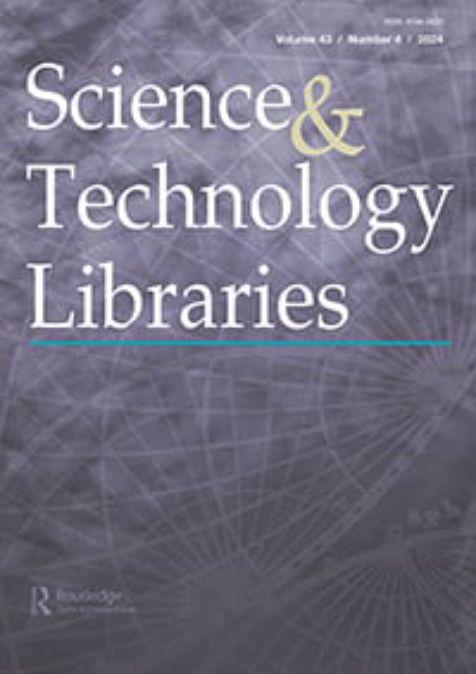 AuthorsJanuary 23, 2025This paper was originaly published on tandfonline.com While Marie Curie’s unique presence among 29 male scientists at the 1927 Solvay Conference underscores the historical gender gap in science, the persistent underrepresentation of women in authorship of scientific publications – particularly in Africa and the Global South – highlights the enduring challenge of achieving gender equality in the scientific community. African women scientists represent 31.1% of the scientific ...
AuthorsJanuary 23, 2025This paper was originaly published on tandfonline.com While Marie Curie’s unique presence among 29 male scientists at the 1927 Solvay Conference underscores the historical gender gap in science, the persistent underrepresentation of women in authorship of scientific publications – particularly in Africa and the Global South – highlights the enduring challenge of achieving gender equality in the scientific community. African women scientists represent 31.1% of the scientific ... -
 AuthorsDecember 27, 2024Ce récit a été initialement publié dans l'ouvrage Le leadership féminin au Maroc : De l’invisibilité à la visibilité Si le combat des femmes marocaines a une histoire, et si des figures féminines emblématiques ont marqué par leur bravoure, leur diplomatie ou leur talent l’histoire du Maroc, il n’en demeure pas moins que cette histoire illustre reste méconnue. L’Indépendance du Maroc s’est accompagnée d’une ouverture prometteuse pour l’émancipation de la femme, et le geste1 ...
AuthorsDecember 27, 2024Ce récit a été initialement publié dans l'ouvrage Le leadership féminin au Maroc : De l’invisibilité à la visibilité Si le combat des femmes marocaines a une histoire, et si des figures féminines emblématiques ont marqué par leur bravoure, leur diplomatie ou leur talent l’histoire du Maroc, il n’en demeure pas moins que cette histoire illustre reste méconnue. L’Indépendance du Maroc s’est accompagnée d’une ouverture prometteuse pour l’émancipation de la femme, et le geste1 ... -
Tosin Durotoye and Majda BelkheiriNovember 08, 2024In this episode, ADEL alumna Tosin Durotoye dives into the vital topic of investing in women and girls in Africa, shedding light on how targeted education and empowerment can drive impact ...
-
AuthorsNovember 1, 2024Using panel data from a large group of developing economies and a Generalized Method of Moments (GMM) estimator, we examine the effects of trade and other factors on female labor-force participation and wage employment. We focus particularly on comparing the effects of trade openness in the Middle East and North Africa (MENA) region with Latin America and the Caribbean (LAC) and sub-Saharan Africa (SSA). The empirical results indicate that trade openness affects female labor-force p ...


